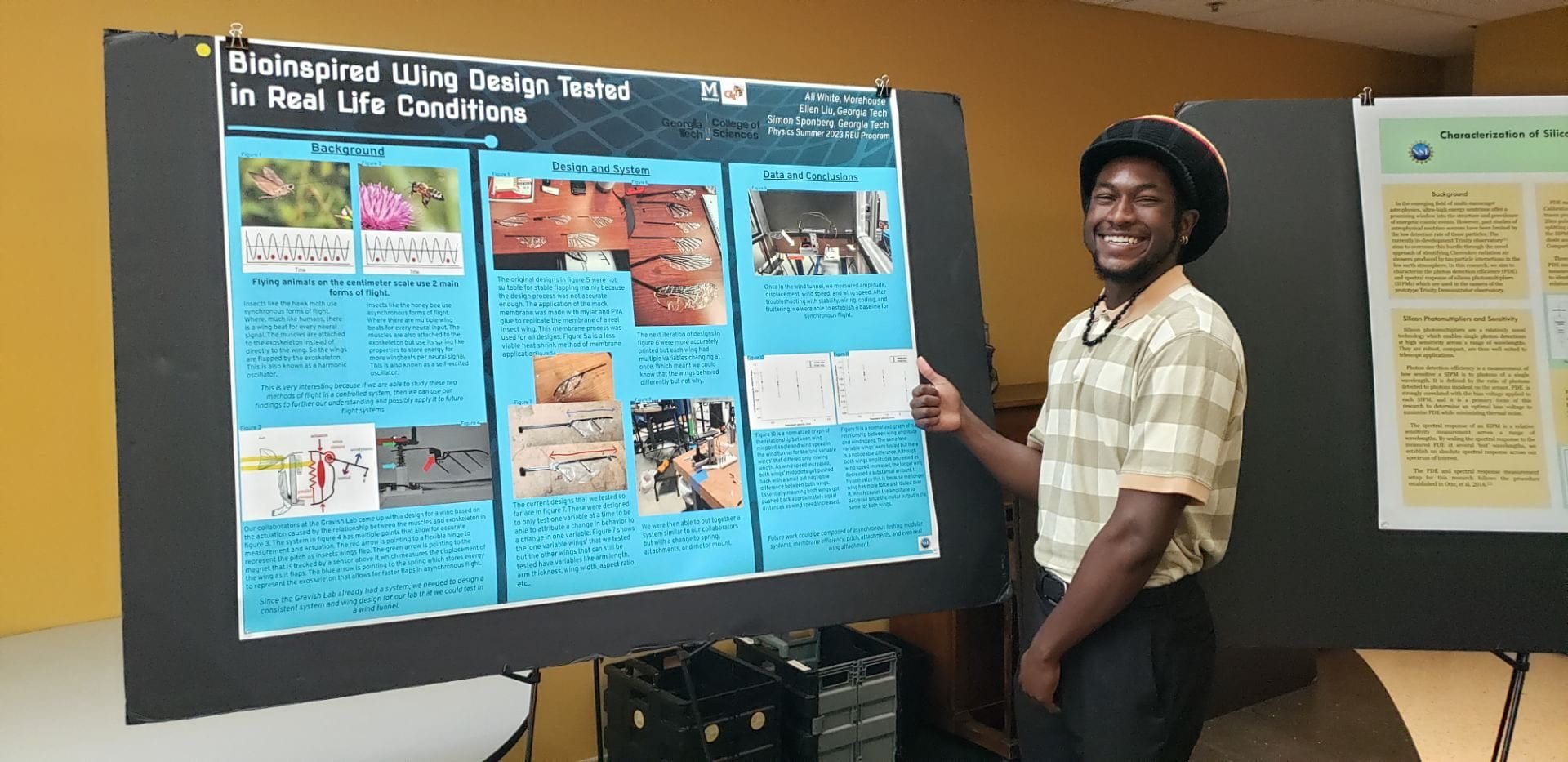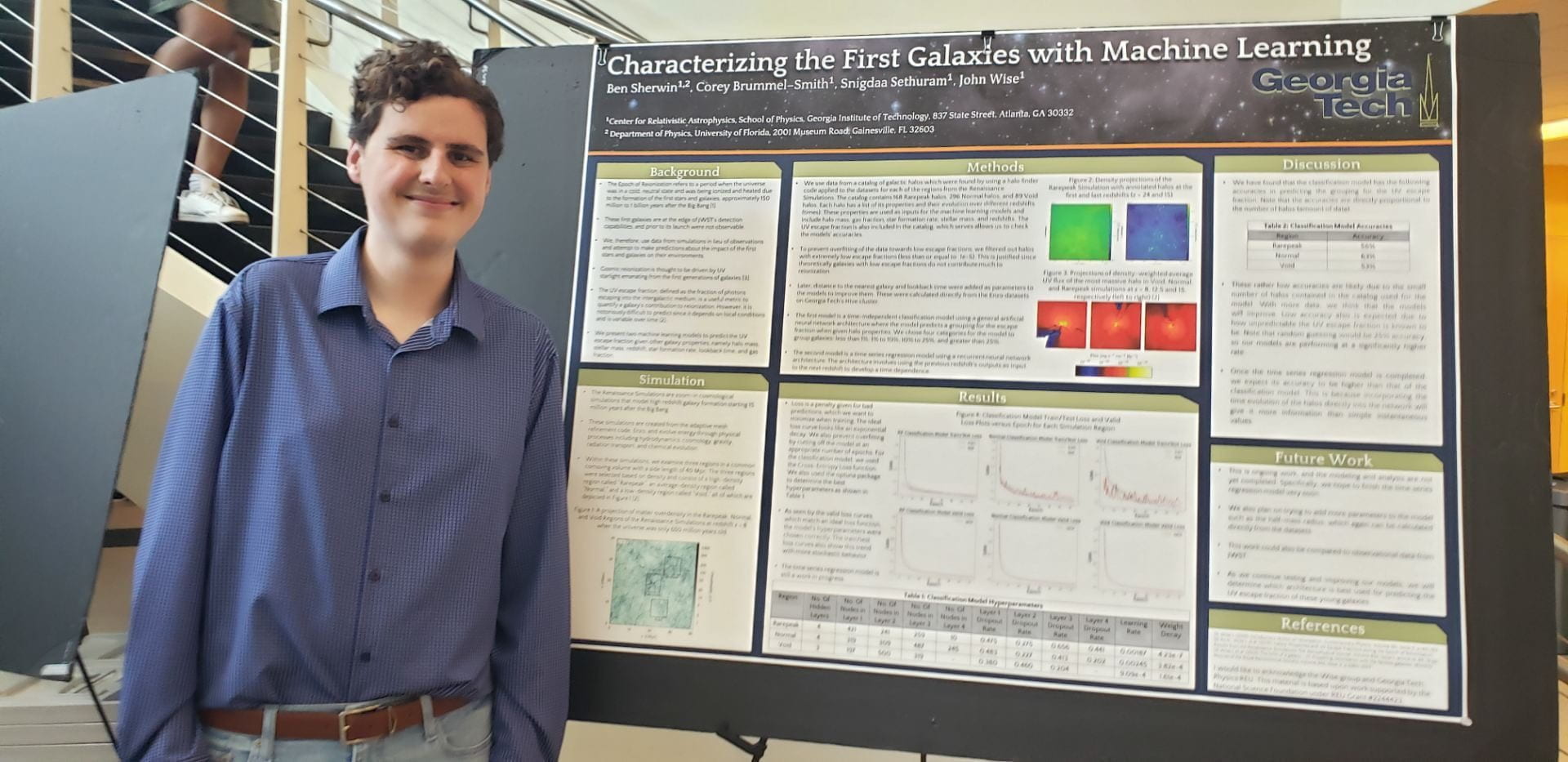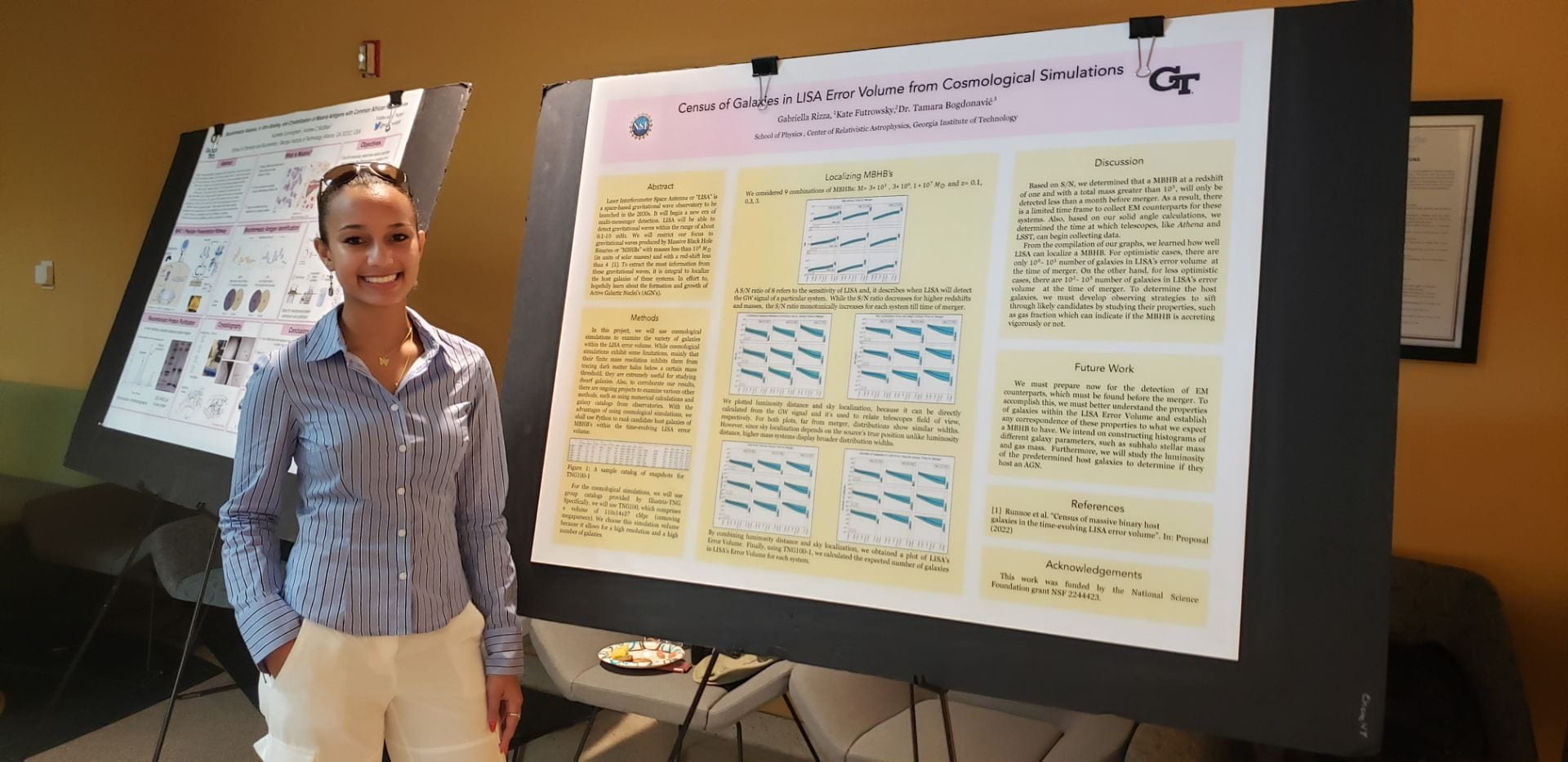Astrophysics
Astrophysics activities at Georgia Tech are devoted to interdisciplinary research and education linking astrophysics, astroparticle physics, computational physics, cosmology, data analysis, numerical relativity and gravitational wave physics. Multi-messenger astrophysics is at the core of the faculty’s research groups, using photons, particles, and gravitational waves to understand cosmic objects across the universe. Students often work with data from current observatories, such as LIGO, IceCube, and JWST, and design new hardware for next-generation astroparticle detectors.
2025 Faculty Advisors: Nepomuk Otte, Surabhi Sachdev, Ignacio Tabaoda.
Condensed Matter and Quantum Materials
The core strength of the condensed matter group is the growth, characterization, and spectroscopy of quantum materials, including new-generation epitaxial graphene, topological insulators and semimetals, and quantum spin liquids. Our goal is to harness the quantum mechanical properties of materials for future nanoelectronics and sensors and to gain deeper insights into quantum many-body physics.
2025 Faculty Advisors: Claire Berger, Phil First, Michael Pustilnik.
Physics of Living Systems
The Physics of Living Systems Group in the School of Physics at Georgia Tech seeks to understand how physics can inform questions of structure, function, and dynamics in biological systems, and to study fundamental physics questions posed by biological systems. Check out our new website to learn more!
2025 Faculty Advisors: Shila Banerjee, Jennifer Curtis, Flavio Fenton, Dan Goldman, Peter Yunker.
Quantum Simulation/Sensors with Ultracold Atoms
The atom has played a pivotal role as both a benchmark for our current theories and an inspiration for new ones. Foundational concepts, such as Bose and Fermi statistics, the Schrödinger equation, and spin-orbit coupling, have emerged from their atomic origins and become prerequisite knowledge for the study of nuclei, molecules, and, crucially, solid-state materials. Our research team looks to harness the power of these seemingly simple objects to understand the world around us, and particularly the materials that make it up, in new ways.
2025 Faculty Advisors: Michael Chapman. Colin Parker.
Non-Linear Dynamics / Complex Systems
The beauty and complexity of the world around us owe a lot to the fact that the governing laws are nonlinear. This hidden commonality allows one to discover similarities in problems ranging from quantum phenomena at one end of the scale to the structure of the Universe at the other.
2025 Faculty Advisors: Flavio Fenton.
Robophysics
In our lab, we take a “robophysical” approach to discover principles of effective interaction of ambulatory robots with multicomponent flowable substrates. We use robots as simplified model locomotors to test hypotheses and explore principles of locomotion.
2025 Faculty Advisors: Dan Goldman.
Soft Matter Physics
The Soft Matter Group in the School of Physics at Georgia Tech studies a wide variety of complex systems that are “soft” in the sense of transitioning easily between diverse states. We combine cutting-edge experiments and innovative theory to probe matter from microscopic colloidal, polymeric, liquid-crystalline, and biological/active particles to macroscale structures such as knits, origami, mechanical lattices, and robots.
2025 Faculty Advisors: Itamar Kolvin, Zeb Rocklin.
Space Plasma Physics
The Space Plasma Physics group at GT studies the interactions of the planets and moons of our solar system with the magnetized plasma surrounding them. For this purpose, we apply three-dimensional computer models of the plasma flow as well as data from NASA missions like Juno, New Horizons, or Galileo.
2024 Faculty Advisors: Sven Simon.















